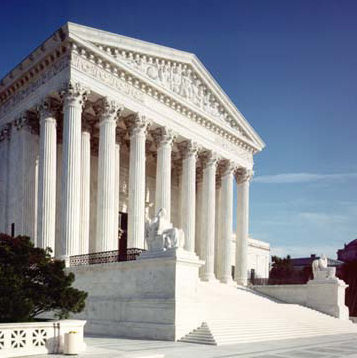
The U.S. Supreme Court will hear a case on whether private sector healthcare providers can sue states to increase Medicaid reimbursements, the high court announced Thursday. Based on previous rulings, the court is not likely to rule in favor of the providers, experts say.
The matter originated in 2009, when Exceptional Child Center and other providers sued the state of Idaho. They claimed that the state unlawfully had kept Medicaid reimbursements at 2006 levels despite cost of care increases. A federal judge and then an appeals court found in favor of the providers, and the state increased reimbursements to the tune of $12 million in 2013, according to local reports.
At issue is the Supremacy Clause of the U.S. Constitution. Idaho officials argue that it prohibits private legal actions like the one brought by the providers. The providers say they have no other recourse to ensure they receive adequate reimbursements to keep offering services under Medicaid. By law, Medicaid funding must attract enough providers so that beneficiaries have roughly the same access to services as the “general population.”
The conservative wing of the court — Chief Justice John Roberts and Justices Antonin Scalia, Clarence Thomas and Samuel Alito — almost certainly will side with the state, attorney Joel M. Hamme told the Bureau of National Affairs. The deciding vote likely will rest with the most politically centrist justice, Anthony Kennedy.
“Hard to imagine a good outcome for providers and beneficiaries, though, of course, stranger things have happened,” said Hamme, of the Washington, D.C., firm Power, Pyles, Sutter & Verville PC.
Medicaid generally does not reimburse long-term care facilities for the actual costs of care, and operators in states such as Maine have been squeezed by rate freezes or decreases. State leaders often say that tight budgets tie their hands.




